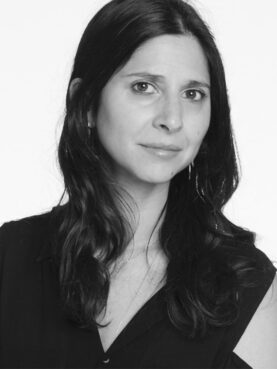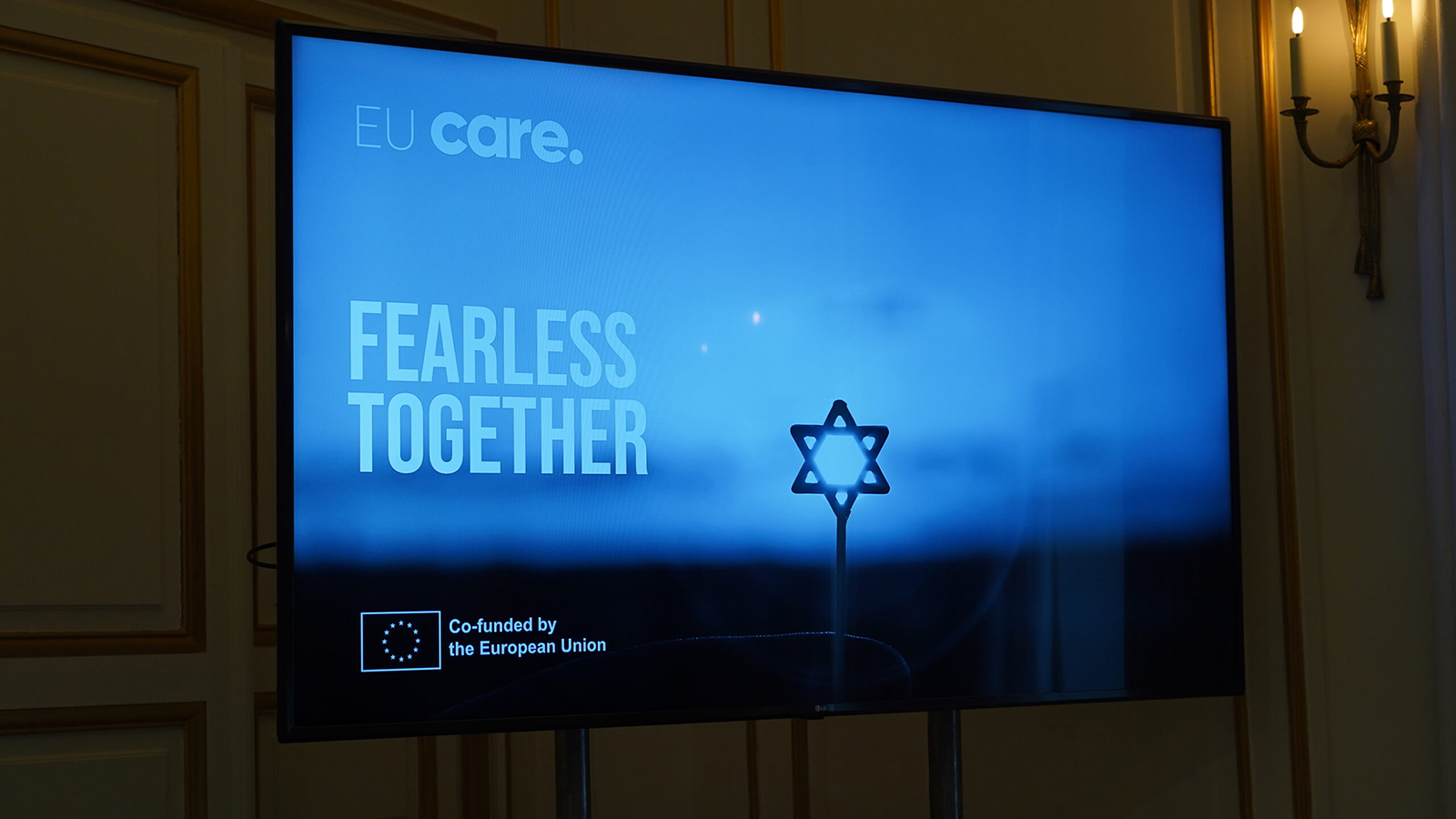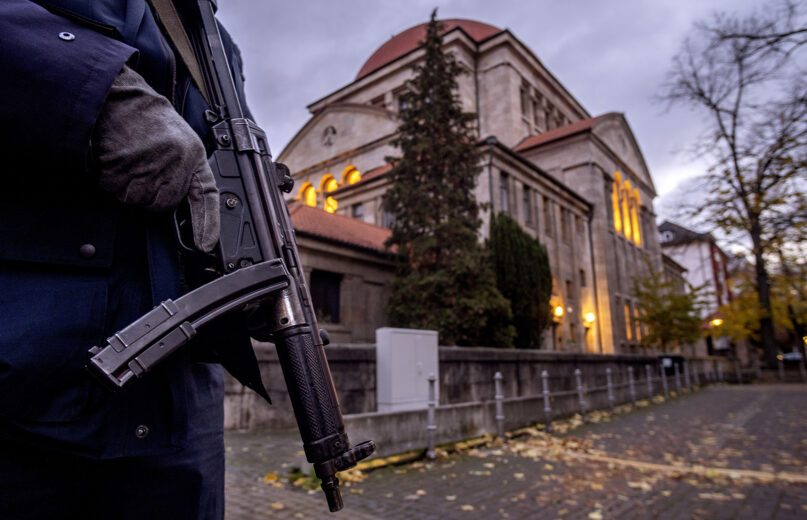(RNS) — It’s well-known among Jews traveling in Europe that synagogues there can sometimes feel harder to get into than Fort Knox. Police barricades and metal detectors are commonplace as local and national governments move to prevent antisemitic violence. Calling ahead to submit identification before visiting is a given.
But a new program debuting across the continent is shifting the burden from law enforcement to those inside the synagogue.
Partially funded by the European Union, EUCARE — standing for community awareness and resilience education — educates Jewish communities about ongoing threats, training them to identify suspicious activity, understand how to report to the relevant authorities and react in the case of a bombing, active shooter or other attack.
Locally appointed EUCARE representatives will work with law enforcement to gather intelligence on a community’s threat environment.
“We cannot have security everywhere, we cannot have security officers everywhere, nor police,” said Yael Landman, the director of EUCARE. “And we don’t want to meet in a world like that. So the basics of this program is that everyone should be responsible and an actor in their own security.

Yael Landman. (Courtesy photo)
“In prevention, the community has a role, a huge role,” Landman said. “When someone wants to commit an attack, not always, but much of the time, they come to gather information. This is where a community member or a passerby can notice someone acting strangely, looking strangely at the synagogue, for example, and can report it.”
In the case of an attack, “the first people on site are going to be the Jewish community members,” she added.
Such grassroots security programs have become increasingly popular among Jewish communities in recent years. In the U.S. a similar program, Community Security Service, boasts 2,000 trained volunteers providing security at 150 synagogues around the country. in many, CSS volunteers have replaced hired security. In the U.K., the Community Security Trust, an antisemitism watchdog group, offers a similar program.
After being piloted in six communities, the security program, EUCARE, is now ready to be implemented across the European Union.
Europe is home to some 1.2 million Jews, a small fraction of the 10 million Jews who called the continent home before the Holocaust. About half live in France and the United Kingdom, with the rest spread across 44 countries and hundreds of communities, with many cities and countries being home to only a few thousand, or just a few hundred, Jews.
Small numbers, coupled with the weight of history, have left European Jewish communities feeling particularly vulnerable as antisemitic incidents have spiked since the outbreak of the Israel-Hamas war in October. In contrast to the U.S., where many Jewish communities have seen a push for more communal engagement, many European communities felt a clear chill on Jewish life.
“France is seeing a wave of antisemitism not equaled since 1945,” French Jewish intellectual Bernard-Henri Lévy, told The New York Times in October.
In Istanbul, home to more than 10,000 Jews, community leaders made the decision to close all but four of the community’s 18 active synagogues in the immediate wake of Oct. 7. The closures have stayed in place for more than six months.
Other countries’ measures were not as drastic, but fear and insecurity were widespread.

EUCARE is partially funded by the European Union. (Photo courtesy of EUCARE)
“Here in Belgium, and I know that in many communities in Europe, people got terrorized,” said Landman. “Although it happened in Israel, the effect it had on the communities was that people were scared to send their kids to school, and people were calling us saying they didn’t want to go to the synagogues and they didn’t even want to go to a bat mitzvah, et cetera.”
Some in her community, Landman added, changed their names on the delivery and ride apps to disguise their Jewish heritage.
Though the program is particularly needed in this current climate, it’s been in the works at least since the 2015 Islamic State attack on Paris’ Bataclan theater, which killed more than 130.
“We realized that actually people here were not prepared for these kinds of attacks, even among the Jewish population, even though we have been targets basically forever,” said Landman. A group of academics, security officers, psychologists and teachers came together to create the basis of the care program.
Bulgaria, one of the countries where synagogues participated in the pilot, was the site of a terror attack on Israeli tourists in 2012.
Victoria Behar, a member of the Sofia Jewish community, noted with pride that synagogues there never closed their synagogue. “We started the training and awareness campaign within the community, so we can have our members be more aware and more responsible for each other,” Behar told Religion News Service.
“We started training with different groups, we started with the teachers, then we had a training with youngsters in the youth movement gatherings. And now we are moving to a more general audience.”
While serving to improve security awareness in the community, the program also helped life to continue unfazed, she said.
“We didn’t close the synagogue ever, and we never stopped life in the school, or community events. We had a big Hanukkah and Purim this year,” she noted.
“It’s true that we have changed the paradigm,” Landman said. “We take it from collective to individual, but at the same time, it’s individual to collective because when you are looking for your own security, you are working also for the security of your community.”





